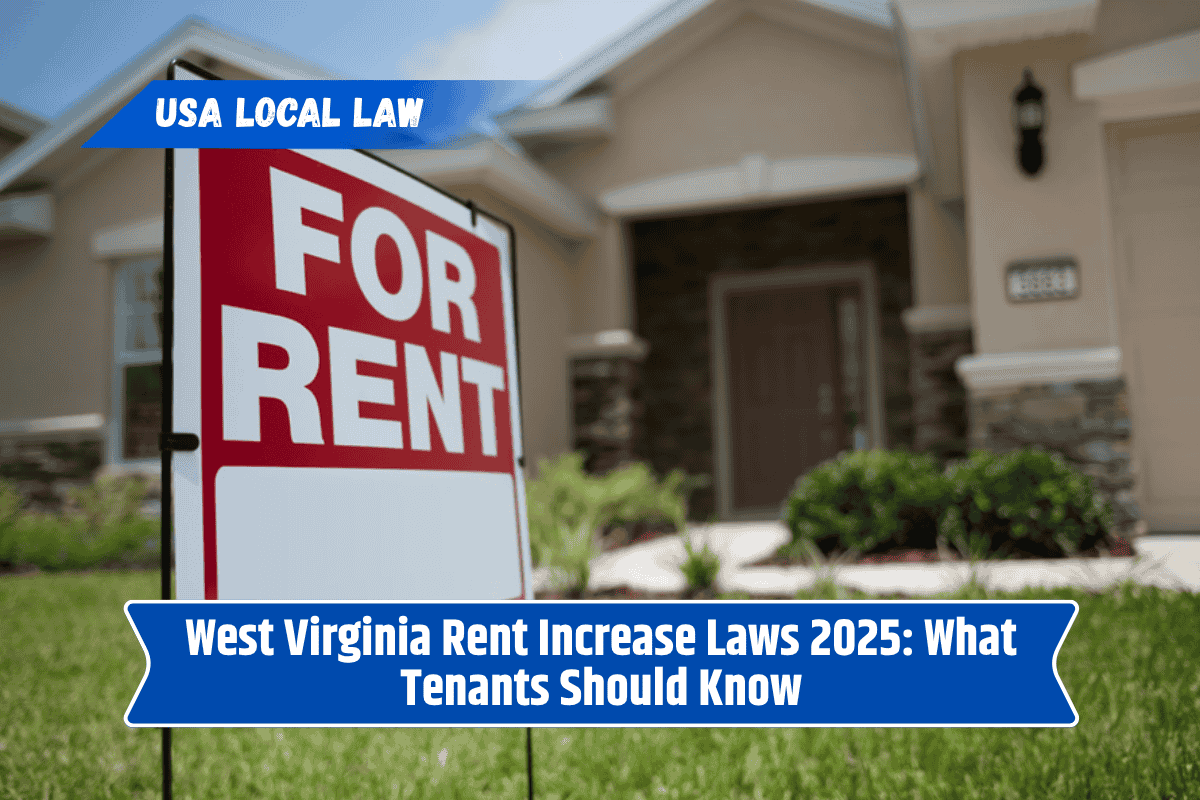As rental markets continue to evolve, it’s important for tenants to understand their rights, especially when it comes to rent increases. In West Virginia, rent prices can change, but there are specific rules landlords must follow to make sure everything is fair and legal.
For tenants in West Virginia, knowing these laws can help prevent surprises and ensure that the rental process remains transparent. Here’s what you need to know about rent increase laws in the state for 2025.
Understanding Rent Increases in West Virginia
In West Virginia, landlords have the right to increase rent, but they must follow certain procedures to ensure the increase is legal. Unlike some states, West Virginia does not have strict statewide rent control laws that limit how much a landlord can raise rent or how often they can do so.
However, there are rules that ensure the process is fair for both tenants and landlords.
How Much Can Rent Be Increased?
In West Virginia, there is no limit on how much a landlord can increase rent. However, the rent increase must be reasonable, and tenants are protected by certain guidelines. The main restriction is that the increase should be within a reasonable range, considering the market conditions and the general rental price trends in the area.
While there is no cap on the amount a landlord can raise rent, they must provide proper notice before doing so. A sudden, massive rent hike could be considered unfair or even considered harassment, depending on the circumstances.
Notice Requirements for Rent Increases
Landlords in West Virginia are required to give tenants written notice of any rent increase. The notice period varies depending on the length of the lease agreement:
- For Month-to-Month Leases:
If you’re renting on a month-to-month lease, landlords must provide at least 30 days’ notice before increasing the rent. This gives tenants time to adjust their budget or consider other housing options. - For Fixed-Term Leases:
If you are on a fixed-term lease (such as a 12-month lease), the rent cannot be increased until the lease expires unless the lease agreement specifically allows for rent increases during the term. In most cases, the rent increase will only take place when the lease is renewed.
Can Rent Be Increased Mid-Lease?
Rent can only be increased mid-lease in West Virginia if it is stated in the lease agreement. For example, if the lease has a clause that allows for rent adjustments, the landlord can increase the rent according to that provision. However, without such a clause, a landlord cannot raise the rent during the term of the lease.
When a lease expires, the landlord can choose to increase the rent, but they must give notice (usually 30 days in advance for month-to-month tenants). If a tenant does not agree to the new rent, they have the option to move out when the lease ends.
Legal Protections Against Unfair Rent Increases
While there is no statewide rent control in West Virginia, tenants are still protected against unfair or discriminatory rent increases. Landlords cannot increase rent in retaliation for a tenant asserting their rights, such as complaining about poor maintenance or reporting violations of tenant rights.
Rent increases also cannot be based on discriminatory reasons, such as race, religion, gender, or familial status.
If a tenant believes that the rent increase is retaliatory or discriminatory, they can file a complaint with the local housing authority or seek legal advice. In some cases, a tenant may be able to challenge the increase in court.
What Should Tenants Do If They Face a Rent Increase?
If you’re a tenant in West Virginia and your landlord notifies you of a rent increase, here are a few steps you can take:
- Review the Lease Agreement:
Double-check your lease agreement to see if it includes any clauses about rent increases. If your lease is a fixed-term lease, the landlord can only increase the rent at the time of renewal. - Assess the Market:
Research rent prices in your area to determine if the increase is reasonable. If you find that the increase is much higher than comparable rental units, you may want to discuss the issue with your landlord or seek legal advice. - Negotiate the Rent Increase:
If you feel that the increase is too high or unfair, you can try negotiating with your landlord. You might be able to come to an agreement that works for both parties. - Know Your Rights:
Understand that landlords cannot increase rent as a form of retaliation or discrimination. If you suspect this, you should consult with a tenant rights organization or legal professional. - Look for Alternatives:
If the rent increase is too much for you to afford, it may be time to start looking for a new place to live. Giving proper notice to your landlord (at least 30 days for month-to-month leases) will help you avoid penalties for breaking the lease early.
Can Rent Increases Be Challenged in Court?
Yes, if you believe a rent increase is unfair or violates your rights, you can challenge it in court. Tenants can take legal action if the rent increase is in retaliation, discriminatory, or if proper notice was not given. The court will review the circumstances and decide if the rent increase is legal under the terms of the lease and state law.
Rent increases in West Virginia are common, but tenants have rights that protect them from unreasonable hikes. While there is no statewide rent control, landlords must follow legal procedures, such as providing written notice of any increase.
If you’re facing a rent increase, make sure you understand your lease terms, assess the fairness of the increase, and know your rights as a tenant. By staying informed and proactive, you can navigate rent increases smoothly and avoid any surprises.
